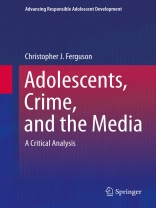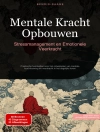A campus shooting. A gang assault. A school bus ambush. With each successive event, fingers are pointed at the usual suspects: violent films, bloody video games, explicit web sites. But to what extent can—or should—the media be implicated in youth crime? And are today’s sophisticated young people really that susceptible to their influence?
Adolescents, Crime, and the Media critically examines perceptions of these phenomena through the lens of the ongoing relationship between generations of adults and youth. A wealth of research findings transcends the standard nature/nurture debate, analyzing media effects on young people’s behavior, brain development in adolescence, ways adults can be misled about youth’s participation in criminal acts, and how science can be manipulated by prevailing attitudes toward youth. The author strikes a necessary balance between the viewpoints of media providers and those seeking to restrict media or young people’s access to them. And the book brings scientific and intellectual rigor to culturally and politically charged issues as it covers:
- Violence in the media.
- Media portrayals of crime and youth.
- Research on violent television programs, video games, and other media as causes of crime.
- Effects of pornography on behavior.
- Public policy, censorship, and First Amendment issues.
Adolescents, Crime, and the Media is an essential resource for researchers, graduate students, professionals, and clinicians across such interrelated disciplines as developmental psychology, sociology, educational policy, criminology/criminal justice, child and school psychology, and media law.
Tabela de Conteúdo
Part 1: Media Depictions of Crime .- Chapter 1: Introduction: Crime and the Media.- Chapter 2: A History of Violence in the Media.- Chapter 3: Media Portrayals of Crime and Youth.- Chapter 4: Adolescents in the News Media.- Chapter 5: The “CSI Effect”.- Part 2: Research on Media as a Cause of Crime .- Chapter 6: Television Violence.- Chapter 7: Video Games.- Chapter 8: Other Media.- Chapter 9: Pornography.- Chapter 10: Public Policy, Censorship and 1st Amendment Issues.
Sobre o autor
Christopher J. Ferguson, Ph.D., is an associate professor of clinical and forensic psychology at Texas A&M International University. He received his doctorate in clinical psychology from the University of Central Florida and is an internationally recognized researcher of video game and other media effects, his work having been published in leading journals in psychology, criminal justice, pediatrics, and psychiatry. He recently served as guest editor for the American Psychological Association journal Review of General Psychology’s special issue on video game effects. He lives in Laredo, Texas with his wife and young son.












